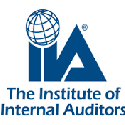E-commerce in Pakistan

Industrial revolutions have remarkably transformed the social, economic and environmental dynamics of the entire world. Whereas the first three industrial revolutions brought tremendous growth around the globe, the world now stands on the edge of a technological revolution that will redefine the social and developmental aspects of life. Over the past two decades and with the introduction of cellular mobile phone in early 90’s, Pakistan Telecom has achieved importantmilestones which are necessary to take benefit of fourth industrial revolution. Among many developments in various economic sectors, e-Commerce is a significant driver of digitalization.
To promote e-Commerce and financial services in Pakistan, regulations regarding Framework for Payment System Operators (PSO) and Payment Service Providers (PSP) have been developed and approved by the State Bank. An ‘e-Commerce Policy Board’ has also been framed by the Ministry of Commerce. Such measures have brought some international e-Commerce giants such as Alibaba to Pakistan, which will provide an international platform for local products and promote e-Commerce within the country. According to the PTA annual report 2017, the existing size of Pakistan’s e-Commerce market is $60-100 (2015) million which is expected to expand 10 times i.e. up to $ 1 billion by 2020.Through many Business to Consumer (B2C) start-ups in private sector, in Pakistan the consumer behavior has changed considerably. Even though the e-Commerce industry has flourished over past many years, it is still largely depended on cash, which is obvious from the fact that 95% of e-Commerce transactions are done on cash on delivery basis. Online stores such as olx.com, daraz.pk, shophive.com, homeshopping.pk and goto.com etc.have set the trend in Pakistan for many new businesses to follow. With the idea of discounts and promotional deals on various occasions they have further improved the prospects of e-Commerce. Based on the concept of online buying and selling, many user friendly websites have been created for users to list their moveable or immovable properties for sale. Pakwheels.com and zameen.com are two such examples where automobiles and property is sold respectively.
These online operations have created opportunities for foreign investments in Pakistan. According to PTA following funds were recently invested in Pakistan.
| e-Business | Foreign investors | Amount invested |
| Daraz.pk | Asia Pacific Internet Group (APIG) | $55 Million |
| Zameen.pk | Catch Group and Frontier Digital | $29 Million |
| Careem | Abraaj Group | $60 Million |
| Rozee.pk | VostokNafta andPiton Capital | $6.5 Million |
 In a country like Pakistan, with a population around 200million, only 41 million people have access to internet, where only 5 million people shop online catered by 2000 e-retailers.
In a country like Pakistan, with a population around 200million, only 41 million people have access to internet, where only 5 million people shop online catered by 2000 e-retailers.
When compared globally the market size and figures are relatively small, however with increasing potential. In terms of Business to Business (B2B) e-Commerce the software industry is making smooth progress. With the size of approximately $530 million it aims to achieve a target of $ 5 billion by 2020.
Nevertheless with the fourth industrial revolution Pakistan is making every effort in order to compete globally, there are still many barriers that need to be removed. Consumer/seller protection for e-Commerce transactions in terms of quality and reliability of products as well as payments has to be ascertained. It is also prerequisite to provide low cost secure internet service across the country to increase the internet shoppers and business opportunities. The overall infrastructure for e-Commerce has to be established and made reliable up to the satisfaction of users and international standards.
By: Sahrish Wajahat
A freelance consultant, with more than 8 years of post-qualification experience. Served in various capacities at several external/internal audits, accounting reviews and consultancies of development, educational and government sector.




